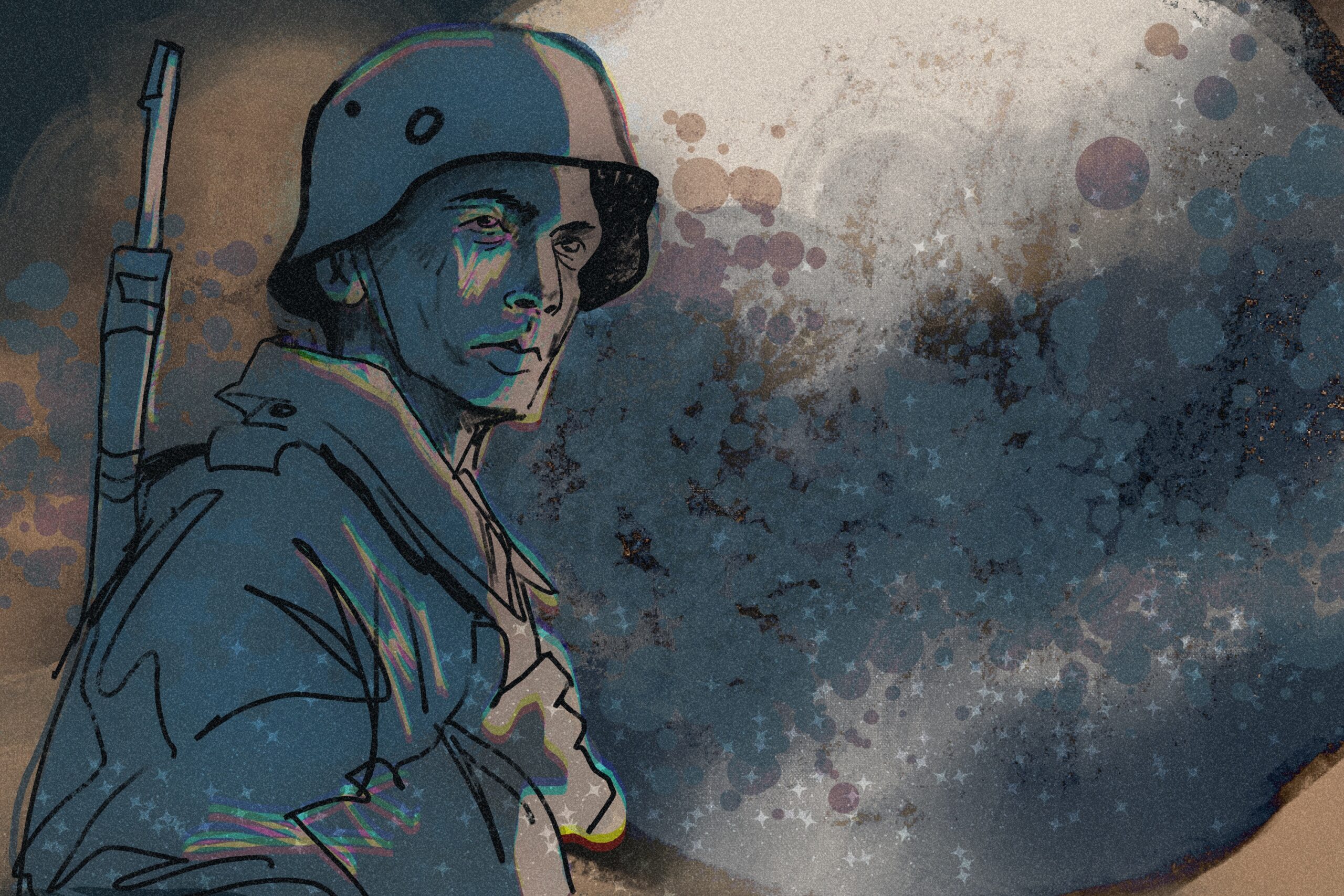Nearly as old as humanity itself, and perhaps the most potent weapons in our human arsenal, propaganda usually gets a bad rap. And often rightly so. Most of the major propaganda outlets in history have been used to control the masses, inspire terror, and keep power in the hands of the powerful. Various examples have shown this time and time again, whether coming from foreign governments like Chairman Mao’s “Little Red Book”, or even closer to home with the “Writer’s War Board,” an American Propaganda organization. Propaganda has often been an incredibly powerful tool, and many times in the wrong hands caused devastating effects. Yet what happens if it happens to find the right ones?
This is exactly what unfolded in John Steinbeck’s controversial Novel, “The Moon Is Down.” Influenced by his time working with European refugees and set towards the end of the Second World War in an undisclosed town in northern Europe, the novel tackles themes of liberty, hopelessness, and resistance with an aim at inspiring democratic hope. The story follows a town that has been invaded by a totalitarian country (an unnamed stand-in for WWII’s German forces) and charts the people’s reactions to such an offense along with their eventual pushback. Each character undergoes various emotional and ideological states as they endure being conquered or conquering, as the short novel tracks both the invaders and the invaded. Steinbeck weaves a haunting, grim, and gaunt tale, depicting the war scene as lifelike as he could all while providing ample amounts of emotional connection to the democratic ideal.
Printed in 1942, the novel was not an immediate success. While often praised for being an inspired piece, at the time many thought the book was too kind to the enemy forces. Scenes throughout the novel display the invaders as calm and precise, with real thoughts and feelings. Most propaganda pieces at the time often depicted the Axis powers by using racial and ethnic stereotypes, along with debasing their character on a cultural level and likening them to animals that need to be put down. This mentality caused critics to oppose the novel and denounce it as a failed piece of propaganda. Some went as far as to entertain that the book would demoralize the resistance movements in Europe and actually be antithetical to the overall war efforts. It was not until many years later that these claims were proven wrong, and it was revealed that Steinbeck’s arrow had truly hit its mark.
As described by Donald V. Coers in the Penguins Classics edition forward to “The Moon is Down,” the book was “Easily the most popular work of Propaganda in occupied Western Europe.” And popular it was, with the forward relaying that thousands of copies were distributed, some dropped by plane, others turned into pamphlets to escape the German’s eye. The novel spread like wildfire, both inspiring resistance as it went and causing harsh admonishments whenever it was found by the occupiers. Contrary to popular criticisms, the humanization of the invading forces did not demoralize the occupied and was most certainly not liked by the enemy forces. Many of the invaded individuals found the book particularly accurate to their plight and even considered it to be far more inspiring than the traditional demonization propaganda that suffused the war. By painting the enemy forces as realistic human beings, the story can show the farcicality of the war. We can see this phenomenon play out particularly well in a key moment in the short novel revolving around a certain Lieutenant Tonder.
One of the recurring themes throughout the book is that the invasion is not simply harmful to those who are invaded, but rather equally harmful for those imposing their foreign rule. There are many ways Steinbeck describes this sequence, but it is most easily understood in a side character by the name of Lieutenant Tonder. While initially nothing to remark upon, as the story progresses, he becomes a clear catalyst for the longings soldiers face when deprived of both their homeland and life’s simple pleasures. For Tonder, this is typically found in the respite of a woman, as he was described to be “a bitter poet who dreamed of perfect, ideal love.” This ultimately led to his eventual demise. As the invasion waged on, it became clear that activities typically viewed as necessities were not only verboten but ultimately dangerous. Soldiers who had gone drinking were never seen again. Similar fates awaited them if they tried to befriend the civilians. Men who tried to curry the invaded woman’s favor soon found themselves dead after going to bed with them. And such was the fate of Lieutenant Tonder, who was unable to deal with the lack of life’s pleasure and tried to find solace in the recently widowed Molly.
Upon the enemy’s arrival, poor Molly’s husband had been murdered as an example to the citizens, and the anger that festered within her had not died out. Tonder, who spoke of wanting Molly to like him and for the world to like him again, was soon felled by a delicate yet lethal pair of knitting scissors shortly after making advances upon her. In this minor character’s storyline, we see what the deprivation of humanity can do to a person. As noted by Steinbeck in the novel, “A man can be a soldier for only… so many months in a year, and then he wants to be a man again, wants girls and drinks and music and laughter and ease, and when these are cut off, they become irresistibly desirable.” This portrait of the invaders as humans who still need normal human interactions juxtaposes their incorrigible actions in such a way that it borders on absurdity. It depicts the ridiculousness of the action and reaffirms the idea that what is being done is not only harmful but immoral. Yet the most powerful moments of inspiration have nothing to do with the invaders at all, but rather the will of the people.
One of the many stark differences between democracy and autocracy comes from the citizen’s view of where power emanates from. Throughout the novel, we see the soldiers hold the notion that the leader is the ultimate source of power. Yet the mayor of the enemy-occupied town sees it differently. Upon being asked to welcome the invaders and cooperate, the Mayor replies that he is merely an extension of the people. He notes, “They made me and they can unmake me,” emphasizing the silent understanding of democratic systems. Leaders are not in a powerful position because they hold power itself, rather it is bestowed upon them by the citizens they rule and can be taken away when favor is lost. This puts the mayor in a moot position, regardless of his action he cannot quell the people if they do not want to be quelled. This scene and overall ideology strike at the heart of the issue and is the reason this piece was so well received in European resistance. This novel served as a reminder to them that they were not powerless and that they had been controlling their own actions for as long as democracy had been established in their lands. The power did not flow from some vile dictator, but rather the people’s response to his grievous actions. It is precisely this that made Steinbeck’s work both brilliant and moving. It is what allowed thousands of oppressed to not give up the fight and ultimately resist the evils that had come to dwell in their lands.
While wars are not won with words alone, they most definitely can change the tide of one. Steinbeck’s “The Moon Is Down” is a shining example of propaganda used correctly and for good. The story flows with democratic idealism that rings true to this day and reminds those who read it who truly is in charge. The effects of this novel are still being uncovered today, but as for now, holds a place in history for showing that the pen may truly be mightier than the sword and that propaganda can prevail for the good of the people.

















